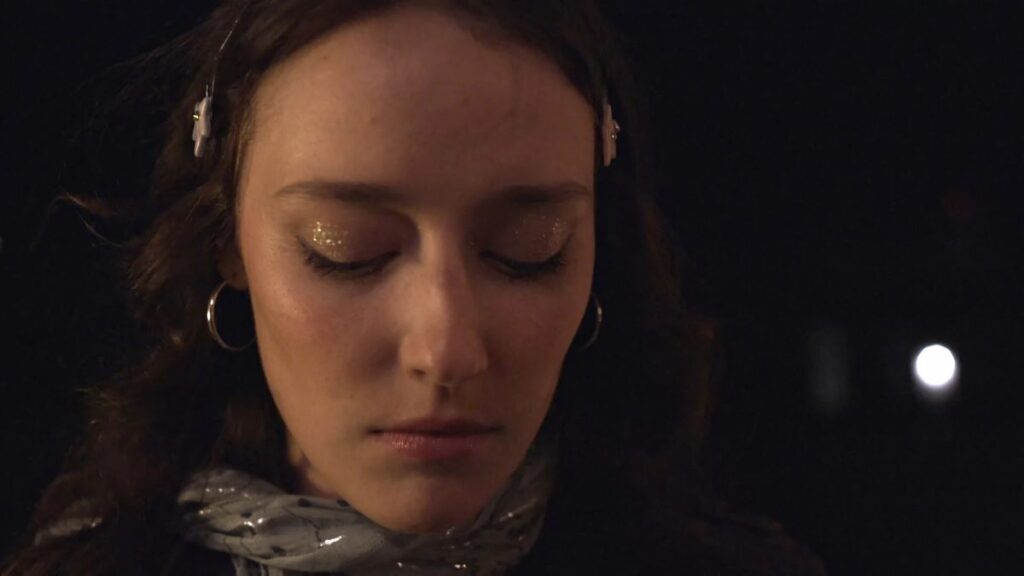When you first watch the short film Hands, made by Chicago-based film student, Lara Haciosmanoglu, it is fairly easy to pick at the bones of it – for instance, some of the staged acting moments both through delivery of dialogue and physical actions. But when I say ‘some’ I refer to the few and far between. And when I say ‘easy’ I refer to the film critic’s ability to wrestle with the justice and the integrity of film-making itself portrayed before us.
In truth, and the above was far from a harsh reality, Hands is a reflective, engaging piece of work. The positives and the promise captured in these 16 affectionate, candid minutes far outweighs any imperfections. Young filmmaker, Haciosmanoglu, clearly has both an innocent and mature outlook in her creativity. Writing and directing that is, at the same time, extremely absent of naivety and vanity.
In fact, Haciosmanoglu echoes her own Turkish roots with Hands. Ones she channels while herself still a student in America close to the finish line in Film and Television Production. The ambitious young soul has been dabbling in various behind the camera experiences in the meantime, before delving into her own personal project. Hands is a short film Haciosmanoglu is proud to call her debut – and rightly so. The response to the film since it was released online has been encouraging, with audiences finding their own emotive memories of childhood friendships and shadowed family issues.
Hands sets up rather nicely, as a young girl, Ayla, huffs and ponders as her Turkish parents organically inflict their culture in what appears to be a fresh start in America. Ayla’s reaction to her parents is akin to second-hand embarrassment at the prospect of acclimatising or having to explain these ‘ways’ should she have friends over. Instantly at school we recognise how kids frown upon anything different or unique – or dare I say ‘foreign’. Another girl, Eden, kind of comes to Ayla’s rescue by outwitting a Mr Smarty Pants, and, via quaint introductions and the sharing of authentic spinach pie, a friendship is born.
With focus on their friendship bracelets made as kids, the film jumps seamlessly to somewhere between teen-and-adult-hood, Ayla and Eden’s relationship is as flamboyant as ever, but the bond has cracks. The status of Ayla getting a boyfriend – through no fault of his own – pulls at those seams, sucking the air from the thus-far enduring friendship. This stuff can happen, a bright new companionship of growing up can pull you away from what we valued highest prior.
Where Haciosmanoglu really shines here, through her rich screenplay and tender directing, is that this nature of things is not always just written. With Ayla, there are behaviours and choices that are in your control, and it is fair to say that her treatment of Eden, during the film’s major plot point, is deflective of what you would tolerate in a true friendship. Haciosmanoglu also dangles subplots in the background (often quite literally) by giving Eden’s broken family a relevant, emotional depth.
And therein lies the film’s most laudable impact from this particular audience member. With young Ayla staring into the oven waiting for food and beyond, Haciosmanoglu wants us to assume this is our heroine. Ayla is charming, endearing and smart for sure, but her character is given a clandestine notion of passivity – in a narrative sense. It is Eden where the central heartstrings are pulled. It is with the older Eden that we experience the fragility of the bond as they approach adulthood. Her change of hair colour from childhood, flashing her long legs, distinctive, identifying make-up etc. is a blatant rug-pulling expression of a girl who is actually rather vulnerable and isolated.
While Molly Dibble (young Ayla), Noa Stewart (young Eden), and Bella Kelso (older Ayla) are fine, Sarah Johnson’s performance as Eden stands out beautifully, which in turn gives her own personal anguish some powerful resonance. And that’s consequential. A key scene in the kitchen when the girls borderline squabble – Eden sits deflated as Ayla’s negative energy exudes – demonstrating that, like friendships, if you don’t water your plants, they might wilt. Johnson doesn’t even need many words to convey such a range of feelings, most we have all felt too many times before.
Hands is lovingly handled by Haciosmanoglu, a little rough around the edges in places, but well meaning. She even has the moxie to have the girls reconcile in the most touching few seconds of the film. Don’t be alarmed if a tear forms in your eye as if from nowhere. Haciosmanoglu was building to this, and it’s a warm, endearing pay off. Student films are not meant to be perfect. We could argue that perfection is an abstract notion we strive for. We are human after all, and Hands reminds us of this.

